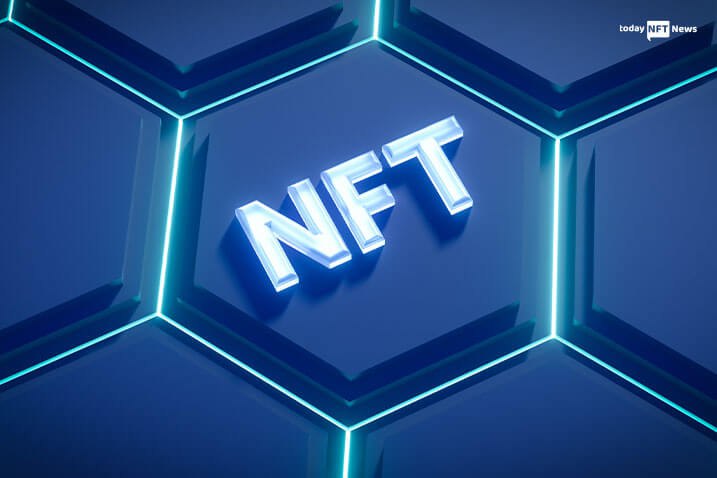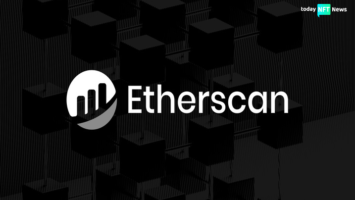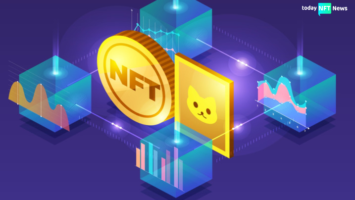Of all the technologies that have come out of the mass movement to Web 3, NFTs (non-fungible tokens) are still one of the most controversial. What started as a billion-dollar industry, with auctions where NFTs sold for millions of USD, has quickly fallen in both public and financial regard.
Digital assets that were once worth hundreds of thousands of dollars are now worth nearly nothing. To put things politely, this industry has fallen to pieces. The driving factor for this is that NFTs, at present, still lack any motive to actually make them desirable to a wider audience. While hype and excitement can drive up the value of a piece, if it doesn’t have any other main pull, they’re simply not worth the investment.
With the failure of NFTs to disrupt the world of art, businesses are looking for other creative ways to put them to use. One of the newest potential methods of using NFT technology is within the ticket industry. As it’s impossible to duplicate NFTs, an NFT ticket would prevent buying scams, ensure that users actually own them, and cut out the majority of ticket seller price-hikes.
In this article, we’ll turn to the world of NFT tickets, demonstrating why this technology acts as the perfect pairing for ticket sales on an economic, social, and even sentimental level.
Let’s get right into it.
Why Are NFT Tickets Such a Good Idea?
The 2022 World Cup has brought the topic of tickets into focus, with millions of tickets being sold and distributed around the world. Alongside a global logistics nightmare, this has led to a plethora of issues. When the Fifa app crashed from the sheer number of people trying to get in, no one could enter the stadium. As they were unable to verify who owned what ticket, this resulted in pandemonium at the event.
In order to overcome problems like these, and a range of other core issues that surround the ticket and ticket-selling industry, people are looking at NFT technology and how it could innovate this space.
There are a range of reasons why NFT tickets work so effectively:
- Avoiding Scams – Often, people will sell tickets outside events or online. When they secure a buyer, they send over a ticket – one they’ve already sold to 10 other people. This is not an uncommon practice, and you’ll often find ticket scams around every major event. Selling an NFT works due to smart contracts, changing the name of the owner to the person that’s buying the digital asset. Due to this, a scammer couldn’t sell the NFT to more than one person, and the buyer would have many different ways to verify that the asset they were buying was completely legitimate. This would cut down on ticket-related crime immensely.
- Destroying Ticket Scalping – For all major events, certain individuals will buy as many tickets as they can and then put up the price by an astronomical amount. Most recently, ticket scalpers focused on Taylor Swift’s US tour, buying tickets and re-listing them for as much as $42,000. As NFTs work on a 1-1 basis and are registered on the blockchain, we could instantly remove third-party ticket sites like TicketMaster, stopping this practice of buying only to resell from occurring. This would lead to more accessible tickets for everyone.
- Valuable Assets – NFT tickets are a digital asset that users will own forever. Unlike a paper ticket that can be destroyed, an NFT ticket will last forever. Due to this, a user could sell their digital asset after a concert, world cup, or show has occurred to other fans of that event. Over time, tickets from major world events would become digital relics, going up in value and becoming valuable to true fans. This could become a form of a collectors item, with devoted fans trying to obtain tickets from major events or shows across history.
NFT tickets work on almost every level. They’re intelligent objects that would help to cut back on ticket-related crime while also putting a stop to the worst parts of this industry. Equally, as digital assets, these tickets would endure long into the future, creating a whole new market of collectibles.
In short, NFT tickets are a fantastic deployment of non-fungible token technology.
Why Hasn’t This Technology Been Implemented So Far?
Although NFT tickets come with a range of benefits, in theory, they are much harder to produce and sustain in practice. Every time a new NFT is minted, it must be processed as a transaction and recorded onto the blockchain. At present, Ethereum is the leading blockchain network for the production of NFTs, due to its flexible infrastructure.
However, due to a mix of Ethereum’s popularity and its low transactions per second speed, it cannot handle the strain placed on its own system. The high demand placed on the ecosystem has caused a queue of transactions waiting to be processed to form. For something like producing NFT tickets, which are both time-sensitive and highly valuable, businesses cannot afford to wait to produce the digital asset.
Due to this, businesses will have to push through the NFTs to the front of the queue, paying a gas fee to mint each NFT. Currently, the average gas fee is around $18 per transaction. While this might already seem high, this figure is actually down 85% since last year. If we look at an event like the World Cup, where 2.95 million tickets were sold before the event even began, we’re looking at an astronomical fee.
Even at the current price of only $18 per transaction, just to mint all the NFT tickets would come in at nearly $54,000,000 USD. Of course, this simply isn’t sustainable. While an event like the World Cup or the Olympics would probably be able to front this cost, many music events and venues simply wouldn’t.
A business would either lose out on minting fees or would have to increase consumer prices, meaning no one can really win.
How Could NFT Tickets Get Around This Problem?
The central problem that this system needs to overcome in order to enable NFT tickets to become a core offering is the high gas fee companies need to pay to mint a new digital asset. Only when the gas fee becomes negligible would NFT tickets become a realistic technology that we could implement.
There are currently many Web 3 businesses that are attempting to lower the gas fee that Ethereum runs with. Of these, one of the most promising candidates is The Boba Network. Boba is a layer-2 scaling solution. What this means is that it can directly integrate into Ethereum’s network, bolstering its infrastructure by providing them with Boba’s core offering.
Boba presents two unique solutions to Ethereum’s problem when it comes to minting NFT tickets. The first of these is providing a much higher throughput to Ethereum. At its current operational rate, Boba could improve performance from anywhere between 40x-100x.
As TPS increases, the queue of transactions waiting to be processed will decrease, leading to a much lower gas fee. Think about reducing that $54 million figure from earlier by 100x, ending up with a much more achievable $540,000 USD.
Beyond just helping with Ethereum’s central infrastructure, Boba also offers a feature known as NFT Bridging. This system allows users to transfer NFTs across from L2s to L1s, creating a new potential method of minting and pushing NFTs into circulation. Companies could mint their NFT tickets on Boba for a minute fee, then pass them over to Ethereum for the main event sale.
Not only would this decrease costs, but it would reduce the strain on the Ethereum ecosystem as a whole. While Boba is only just getting started, their potential solutions are apt and would allow the NFT ticket industry to boom into activity.
Final Thoughts
On paper, NFT tickets sound like a wonderful idea. Easy identification, better sales marketplaces, and permanent memorabilia from a consumer’s favorite event – what isn’t to love? While the current infrastructure of Ethereum, NFT tickets are simply not realistic due to the high gas fees associated with the network.
However, if we are able to innovate Ethereum by using alternative bridging solutions, like The Boba Network, then we would be able to instantly reduce gas fees, increase TPS, and provide a stable structure for NFT tickets to be born into.
Over the next few years, we very well could see the rise of the NFT ticket industry. And, with cutting-edge Web 3 projects leading the charge, we’re sure we’ll be seeing this sooner rather than later.









